 Nota Roncea.ro: Dl George Friedman este un respectat analist de intelligence din Statele Unite, fondator al agentiei private de informatii si geopolitica Stratfor Inc, care reuneste fosti ofiteri de informatii ai structurilor de securitate americane. Am avut privilegiul sa fiu primul ziarist roman care a intrat in legatura cu Stratfor si George Friedman, cu care am intretinut o corespondenta, pentru a publica in premiera in presa romana una dintre analizele de inceput ale Agentiei privind Romania si Marea Neagra. Se intampla cu multi ani in urma, la fosta ZIUA (pentru al carei deces trebuie sa le multumim tot… rusilor). Analiza de mai jos este importanta, in primul rand, pentru ca, dincolo de “semnalele” pe care le transmite, reflecta interesul si nivelul de intelegere si cunostinte ale securistilor americani despre Romania, spatiul carpato-danubiano-pontic si istmul ponto-baltic. Unii vor fi dezamagiti. Altii, nu. Pentru mine, dl Friedman este un tip onest. Face parte dintr-unul din acele “grupuri etnice” ajunse in serviciile de informatii americane de care vorbea Larry Watts si despre care am scris amintind de dezinformarile lui Vladimir Tismaneanu de peste Ocean. Insa spre deosebire de acesta din urma, Friedman recunoaste franc, chiar din preambulul analizei de mai jos, ca judeca Romania si intreaga zona si din perspectiva fiului unei familii din Ungaria de supravietuitori ai lagarelor naziste. De altfel, in aceeasi nota de sinceritate isi si incheie relatarea geopolitica: “I leave Romania confused. The Romanians hear things that I am deaf to. It is even at a pitch my Hungarian part can’t hear. I leave now for another nation, Moldova, which has been even more exposed to history, one even stranger and more brutal than Romania’s.” E, si aici o zbarceste din prima, afirmand ca isi continua calatoria pentru a vizita “o alta natiune – Moldova”. Sa vedem ce va urma…
Nota Roncea.ro: Dl George Friedman este un respectat analist de intelligence din Statele Unite, fondator al agentiei private de informatii si geopolitica Stratfor Inc, care reuneste fosti ofiteri de informatii ai structurilor de securitate americane. Am avut privilegiul sa fiu primul ziarist roman care a intrat in legatura cu Stratfor si George Friedman, cu care am intretinut o corespondenta, pentru a publica in premiera in presa romana una dintre analizele de inceput ale Agentiei privind Romania si Marea Neagra. Se intampla cu multi ani in urma, la fosta ZIUA (pentru al carei deces trebuie sa le multumim tot… rusilor). Analiza de mai jos este importanta, in primul rand, pentru ca, dincolo de “semnalele” pe care le transmite, reflecta interesul si nivelul de intelegere si cunostinte ale securistilor americani despre Romania, spatiul carpato-danubiano-pontic si istmul ponto-baltic. Unii vor fi dezamagiti. Altii, nu. Pentru mine, dl Friedman este un tip onest. Face parte dintr-unul din acele “grupuri etnice” ajunse in serviciile de informatii americane de care vorbea Larry Watts si despre care am scris amintind de dezinformarile lui Vladimir Tismaneanu de peste Ocean. Insa spre deosebire de acesta din urma, Friedman recunoaste franc, chiar din preambulul analizei de mai jos, ca judeca Romania si intreaga zona si din perspectiva fiului unei familii din Ungaria de supravietuitori ai lagarelor naziste. De altfel, in aceeasi nota de sinceritate isi si incheie relatarea geopolitica: “I leave Romania confused. The Romanians hear things that I am deaf to. It is even at a pitch my Hungarian part can’t hear. I leave now for another nation, Moldova, which has been even more exposed to history, one even stranger and more brutal than Romania’s.” E, si aici o zbarceste din prima, afirmand ca isi continua calatoria pentru a vizita “o alta natiune – Moldova”. Sa vedem ce va urma…
Editor’s note: This is the third installment in a series of special reports that Dr. Friedman will write over the next few weeks as he travels to Turkey, Moldova, Romania, Ukraine and Poland. In this series, he will share his observations of the geopolitical imperatives in each country and conclude with reflections on his journey as a whole and options for the United States.
- Special Series: Geopolitical Journey with George Friedman
- By George Friedman
In school, many of us learned the poem Invictus. It concludes with the line, “I am the master of my fate, I am the captain of my soul.” This is a line that a Victorian gentleman might bequeath to an American businessman. It is not a line that resonates in Romania. Nothing in their history tells Romanians that they rule their fate or dominate their soul. Everything in their history is a lesson in how fate masters them or how their very soul is a captive of history. As a nation, Romanians have modest hopes and expectations tempered by their past.
This sensibility is not alien to me. My parents survived the Nazi death camps, returned to Hungary to try to rebuild their lives and then found themselves fleeing the communists. When they arrived in America, their wishes were extraordinarily modest, as I look back on it. They wanted to be safe, to get up in the morning, to go to work, to get paid — to live. They were never under the impression that they were the masters of their fate.
The problem that Romania has is that the world cares about it. More precisely, empires collide where Romania is. The last iteration was the Cold War. Today, at the moment, things seem easier, or at least less desperate, than before. Still, as I discussed in Borderlands, the great powers are sorting themselves out again and therefore Romania is becoming more important to others. It is not clear to me that the Romanians fully appreciate the shift in the geopolitical winds. They think they can hide in Europe, and perhaps they can. But I suspect that history is reaching for Romania again.
Geopolitics and Self-Mutilation
Begin with geography. The Carpathian Mountains define Romania, but in an odd way. Rather than serving as the border of the country, protecting it, the Carpathians are an arc that divides the country into three parts. To the south of the mountains is the Wallachian Plain, the heart of contemporary Romania, where its capital, Bucharest, and its old oil center, Ploiesti, are located. In the east of the Carpathians is the Moldavian Plain. To the northwest of the Carpathians is Transylvania, more rugged, hilly country.
And this is the geopolitical tragedy of Romania. Romania is one nation divided by its geography. None of the three parts is easy to defend. Transylvania came under Hungarian rule in the 11th century, and Hungary came under Ottoman and Austro-Hungarian rule. Wallachia came under Ottoman rule, and Moldavia came under Ottoman and Russian rule. About the only time before the late 19th century that Romania was united was when it was completely conquered. And the only time it was completely conquered was when some empire wanted to secure the Carpathians to defend itself.
Some of us experience geopolitics as an opportunity. Most of humanity experiences it as a catastrophe. Romania has been a nation for a long time, but rarely has it been a united nation-state. After becoming a nation-state in the late 19th century, it had a precarious existence, balanced between Austria-Hungary, the Ottoman Empire and Russia, with Germany a more distant but powerful reality. Romania spent the inter-war years trying to find its balance between monarchy, authoritarianism and fascism, and it never quite found it. It sought safety in an alliance with Hitler and found itself on the front lines in the German invasion of Russia. To understand Romania as an ally one must bear this in mind: When the Soviets began their great counterattack at Stalingrad, they launched it over Romanian (and Hungarian) troops. Romanians maneuvered themselves into the position of fighting and dying for the Germans, and then got their revenge on the Germans by being slaughtered by the Soviets.
All of this led to Romania’s occupation by the Soviets, toward whom the Romanians developed a unique strategy. The Hungarians rose up against the Soviets and were crushed, and the Czechoslovaks tried to create a liberal communist regime that was still loyal to the Soviets and were crushed. The Romanians actually achieved a degree of autonomy from the Soviets in foreign affairs. The way the Romanians got the Soviets to tolerate this was by building a regime more rigid and oppressive than even that of the Soviet Union at the time. The Soviets knew NATO wasn’t going to invade, let alone invade through Romania. So long as the Romanian regime kept the people in line, the Russians could tolerate their maneuvers. Romania retained its national identity and an independent foreign policy but at a stunning price in personal freedom and economic well-being.
Contemporary Romania cannot be understood without understanding Nicolae Ceausescu. He called himself the “Genius of the Carpathians.” He may well have been, but if so, the Carpathian definition of genius is idiosyncratic. The Romanian communist government was built around communists who had remained in Romania during World War II, in prison or in hiding. This was unique among the Soviet Union’s Eastern European satellites. Stalin didn’t trust communists who stayed home and resisted. He preferred communists who had fled to Moscow in the 1930s and had proved themselves loyal to Stalin by their betrayal of others. He sent Moscow communists to rule the rest of the newly occupied countries that buffered Russia from the West. Not so in Romania, where native communists ruled. After the death of the founder of communist Romania, Gheorghe Gheorghiu-Dej, another Romanian communist who stayed in Romania ultimately took over: Ceausescu. This was a peculiarity of Romanian communism that made it more like Josip Broz Tito’s Yugoslavia in foreign policy, and more like a bad dream in domestic policy.
Ceausescu decided to pay off the national debt. His reason seemed to flow from his foreign policy — he didn’t want Romania to be trapped by any country because of its debt — and he repaid it by selling to other countries nearly everything that was produced in Romania. This left Romania in staggering poverty; electricity and heat were occasional things, and even food was scarce in a country that had a lot of it. The Securitate, a domestic secret police whose efficiency and brutality were impressive, suppressed unrest. Nothing in Romania worked as well as the Securitate.
Herta Muller is a Romanian author who writes in German (she is part of Romania’s ethnic German community) and who won the Nobel Prize for Literature in 2009. One of her books, The Appointment, takes place in Romania under the communists. It gives an extraordinary sense of a place ruled by the Securitate. It is about a woman who is living her life, working at her job and dealing with an alcoholic husband while constantly preparing for and living in dread of appointments with the secret police. As in Kafka, what they are looking for and what she is hiding are unclear. But the danger is unrelenting and permeates her entire consciousness. When one reads this book, as I did in preparing for this trip, one understands the way in which the Securitate tore apart a citizen’s soul — and remembers that it was not a distant relic of the 1930s but was still in place and sustaining the Romanian regime in 1989.
It was as if the price that Romania had to pay for autonomy was to punch itself in the face continually. Even the fall of communism took a Romanian path. There was no Velvet Revolution here but a bloody one, where the Securitate resisted the anti-communist rising under circumstances and details that are still hotly debated and unclear. In the end, the Ceausescus (Nicolae’s wife Elena was also a piece of work, requiring a psychological genius to unravel) were executed and the Securitate blended into civil society as part of the organized-crime network that was mistaken for liberalization in the former Soviet empire by Western academics and reporters at the time.
Romania emerged from the previous 70 years of ongoing catastrophe by dreaming of simple things and having no illusions that these things were easy to come by or things Romanians could control. As with much of Eastern Europe but perhaps with a greater intensity, Romanians believed their redemption lay with the West’s multilateral organizations. If they were permitted to join NATO and especially the European Union, their national security needs would be taken care of along with their economic needs. Romanians yearned to become European simply because being Romanian was too dangerous.
The Redemption of Being European
In thinking of Romania, the phrase “institutionalized prisoner” comes to mind. In the United States it is said that if someone stays in prison long enough, he becomes “institutionalized,” someone who can no longer imagine functioning outside a world where someone else always tells him what to do. For Romania, national sovereignty has always been experienced as the process of accommodating itself to more powerful nations and empires. So after 1991, Romania searched for the “someone else” to which it could subordinate itself. More to the point, Romania imbued these entities with extraordinary redemptive powers. Once in NATO and the European Union, all would be well.
And until recently, all has been well, or well in terms of the modest needs of a historical victim. The problem Romania has is that these sanctuaries are in many ways illusions. It looks to NATO for defense, but NATO is a hollowed-out entity. There is a new and ambitious NATO strategy, which sets a global agenda for the organization. Long discussed, it is an exercise in meaninglessness. Countries like Germany have no military with which to fulfill the strategy, assuming that any agreement to act could be reached. NATO is a consensual organization, and a single member can block any mission. The divergent interests of an expanded NATO guarantee that someone will block everything. NATO is an illusion that comforts the Romanians, but only if they don’t look carefully. The Romanians seem to prefer the comforting illusion.
As for the European Union, there is a deep structural tension in the system. The main European economic power is Germany. It is also the world’s second-largest exporter. Its economy is built around exporting. For a country like Romania, economic development requires that it take advantage of its wage advantage. Lower wages allow developing countries to develop their economy through exports. But Europe is dominated by an export superpower. Unlike the postwar world, where the United States absorbed the imports of Germany and Japan without needing to compete with them, Germany remains an exporting country exporting into Romania and leaving precious little room for Romania to develop its economy.
At this stage of its development, Romania should be running a trade surplus, particularly with Germany, but it is not. In 2007, it exported about $40 billion worth of goods and imported about $70 billion. In 2009, it exported the same $40 billion but cut imports to only $54 billion (still a negative). Forty percent of its trade is with Germany, France and Italy, its major EU partners. But it is Germany where the major problem is. And this problem is compounded by the fact that a good part of Romania’s exports to Germany are from German-owned firms operating in Romania.
During the period of relative prosperity in Europe from 1991 to 2008, the structural reality of the EU was hidden under a rising tide. In 2008 the tide went out, revealing the structural reality. It is not clear when the tide of prosperity will come rolling back in. In the meantime, while the German economy is growing again, Romania’s is not. Because it exists in a system where the main engine is an exporter, and the exporter dominates the process of setting rules, it is difficult to see how Romania can take advantage of its greatest asset — a skilled workforce prepared to work for lower wages.
Add to this the regulatory question. Romania is a developing country. Europe’s regulations are drawn with a focus on the highly developed countries. The laws on employment guarantees mean that Europeans don’t hire workers, they adopt them. That means that entrepreneurship is difficult. Being an entrepreneur, as I well know, means making mistakes and recovering from them fast. Given the guarantees that every worker has in Europe, an entrepreneur cannot quickly recover from his mistakes. In Romania, the agility needed for risk-taking is not readily available under EU rules drawn up for a mature economy.
Romania should be a country of small entrepreneurs, and it is, but there is extensive evasion of Brussels’ — and Bucharest’s — regulations. It is a gray market that creates legal jeopardy and therefore corruption in the sector that Romania needs the most. Imagine if Germany had the regulations it champions today in 1955. Could it possibly have developed into what it is in 2010? There may be a time for these regulations (and that is debatable), but for Romania it is not now.
I met a Romanian entrepreneur who marketed industrial products. In talking to him, I raised the question of the various regulations governing his industry and how he handled them. There was no clear answer or, more precisely, I didn’t realize the answer he had given me until later. There are regulations and there are relationships. The latter mitigate the former. In Germany this might be called corruption. In Romania it is survival. A Romanian entrepreneur rigorously following EU regulations would rapidly go out of business. It may be that Romania is corrupt, but the regulatory structure of the EU imposed on a developing economy makes evasion the only rational strategy. And yet the entrepreneur I talked to was a champion of the European Union. He too hoped for the time when he could be a normal European. As Rousseau said, “I have seen these contradictions and they have not rebuffed me.”
It is difficult to for an outsider to see the specific benefits of NATO and EU membership for Romania. But for the Romanians, membership goes beyond the specifics.
Romania’s Choice
August and September are bad months in Europe. It is when wars and crises strike. August and September 2008 were bad months. That August, Russia struck Georgia. In September, the financial crisis burst wide open. In the first, Russia delivered a message to the region: This is what American guarantees are worth. In the European handling of the financial crisis in Eastern Europe, the Germans delivered a message on the limits of German responsibility. Both NATO and the European Union went from being guarantors of Romanian interests to being enormous question marks.
In my conversations with Romanians, at all levels and almost universally, I have found the same answer. First, there is no doubt that NATO and the European Union did not work in Romania’s favor at the moment. Second, there is no question of rethinking Romania’s commitment to either. There are those Romanians, particularly on the far right, who dislike the European Union in particular, but Romania has no strategic alternative.
As for the vast majority, they cannot and will not conceive of a Romania outside the confines of NATO and the European Union. The mere fact that neither is working well for Romania does not mean that they do not do something important: NATO and the European Union keep the anti-democratic demons of the Romanian soul at bay. Being part of Europe is not simply a matter of strategic or economic benefits. It represents a transitional point in Romanian history. With membership in the European Union and NATO, Romania has affirmed its modernity and its democratic institutions. These twin amulets have redeemed Romania’s soul. Given this, I suppose, an unfavorable trade balance and the absence of genuine security guarantees is a small price to pay. I am not Romanian, so I can’t feel their ineffable belief in Brussels.
Romanians do acknowledge, again almost universally, the return of Russia to the historical stage, and it worries them. Of particular concern is Moldova, a region to the east that was historically Romanian, taken by the Soviets in a treaty with Hitler and the rest of which was seized after World War II. Moldova became an independent country in 1991 (a country I will be visiting next). For much of the post-Cold War period it had a communist government that fell a few years ago. An election will be held on Nov. 28, and it appears that the communists might return. The feeling is that if the communists return this time, the Russians will return with them and, in the coming years, Russian troops will be on Romania’s borders.
Romanian officials are actively engaged in discussions with NATO officials about the Russians, but the Germans want a more active involvement of Russia in NATO and not tension between NATO and Russia. The Western Europeans are not about to be drawn into Eastern European paranoia fed by nostalgic American strategists wanting to relive the Cold War, as they think of it.
I raised two strategic alternatives with Romanian officials and the media. One was the Intermarium — an alliance, perhaps in NATO, perhaps not — of Poland, Slovakia, Hungary, Romania and Bulgaria. (To readers who asked why I did not go to Bulgaria on this trip, it was simply a matter of time. I will go there as soon as I can.) Very interestingly, one official pointed out substantial levels of cooperation on military planning between Hungary and Romania and discussions between Romania and Poland. How serious this is and whether it will go beyond the NATO context is unclear to me. Perhaps I can get a better sense in Warsaw.
But military planning is one thing; the wherewithal to execute military plans is quite another. The Romanians are now caught in a crisis over buying fighter planes. There are three choices: the Swedish Gripen, the Eurofighter and used American F-16s. The problem is that the Romanians don’t have the money for any of these aircraft, nor does it seem to me that these are the defense measures they really need. The Americans can provide air cover in a number of ways, and while 24 F-16s would have value, they would not solve Romania’s most pressing military problem. From where I sit, creating an effective mobile force to secure their eastern frontier is what is needed. The alternative I’ve heard was buying naval vessels to block a very real Russian naval buildup in the Black Sea. But if Romania has trouble buying 24 fighters, naval vessels are out of the question.
The Romanians are approaching defense planning from a NATO perspective — one used for planning, not implementation, and one that always leads to sophisticated systems while leaving the basics uncovered. This may seem like an unnecessary level of detail for this essay, but the Romanians are deep in this discussion, and questions like this are the critical details of strategies growing out of geopolitics. It is the difference between planning papers drawn up by think tanks and the ability to defend a nation.
The Black Sea is a critical part of Romania’s reality, and the rise of Turkey makes the system of relationships interesting. Turkey is Romania’s fourth largest export target, and one of the few major trading partners that imports more from Romania than it exports. I pointed out to Romanians that it is the great good fortune of Turkey that it was not admitted to the European Union. Turkey’s economy grew by an annualized rate of 12 percent in the first quarter of 2010 and has been surging for years.
Turkey is becoming a regional economic engine and, unlike Germany, France and Italy, it offers compatibilities and synergies for Romania. In addition, Turkey is a serious military force and, while not seeking confrontation with Russia, it is not subservient to it. Turkey has adopted a “360 degree” strategy of engagement with all countries. And since Turkey is a NATO member, as are Hungary, Slovakia and Poland, there is no incompatibility with a dual strategy of the Intermarium and the Black Sea. For now, they fit. And the irony of Romania reaching out to the heir to the Ottomans is simply that and no more. This is the neighborhood that Romania inhabits. These are the options it has.
What doesn’t fit for Romania is the NATO/EU system alone. Perhaps this is part of a rational mix, but it cannot be all of it. For Romania, the problem is to move beyond the psychological comfort of Europe to a strategic and economic understanding that accepts that the post-Cold War world is over. More important, it would be a move toward accepting that Romania is free, responsible for its future and capable of managing it.
It is this last step that is the hardest for Romania and many of the former Soviet satellites — which were also bound up with World War I and Hitler’s disaster — to come to terms with. There is a connection between buying more expensive German cars than you can afford, and more of them than you need, and the novels of Herta Muller. The appointment can be permanently cancelled, but the fear of the interrogation is always with you. In this region, the fear of the past dominates and oppresses while the confident, American-style military planning and economic restructuring I suggested is alien and frightening.
The Romanians emerged from a world of horror, some of it of their own making. They fear themselves perhaps more than they fear others. For them, becoming European is both a form of therapy and something that will restrain the demons within and without. When you live with bad memories, you live with the shadows of reality. For the Romanians, illusory solutions to haunting memories make a great deal of sense.
It makes sense until war comes, and in this part of the world, the coming of war has been the one certainty since before the Romans. It is only a question of when, with whom and what your own fate will be when it arrives. The Romanians believe with religious fervor that these things will be left behind if they become part of Europe. I am more skeptical. I had thought that Romania’s problem was that it was part of Europe, a weak power surrounded by stronger ones. They seem to believe that their solution is to be part of Europe, a weak power surrounded by stronger ones.
I leave Romania confused. The Romanians hear things that I am deaf to. It is even at a pitch my Hungarian part can’t hear. I leave now for another nation, Moldova, which has been even more exposed to history, one even stranger and more brutal than Romania’s.
Sursa: Geopolitical Journey, Part 3: Romania | STRATFOR
Geopolitical Journey, Part 3: Romania is republished with permission of STRATFOR.
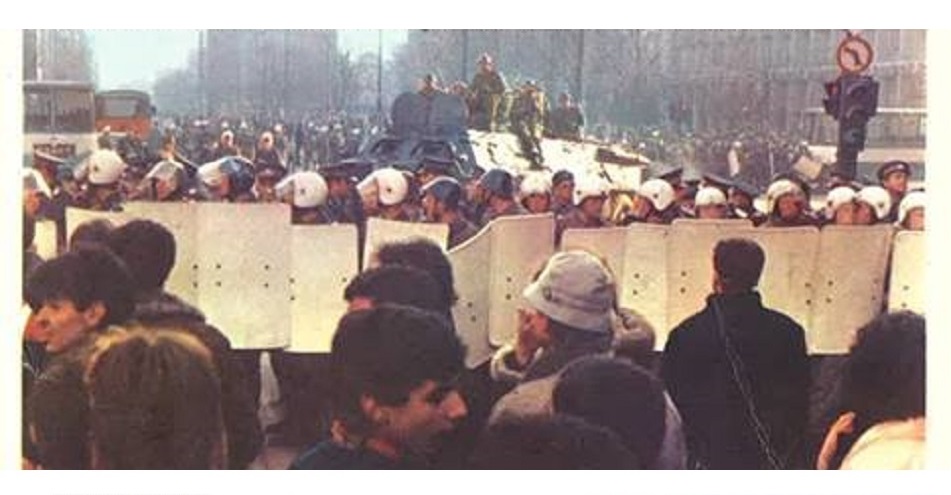
 November 16th, 2010
November 16th, 2010  VR
VR 
 Posted in
Posted in  Tags:
Tags: 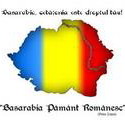






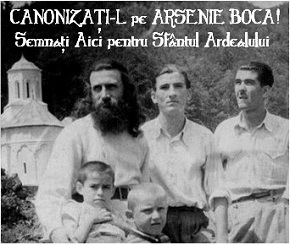


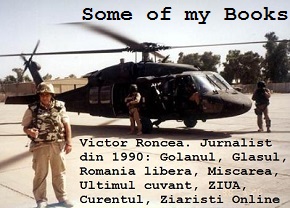
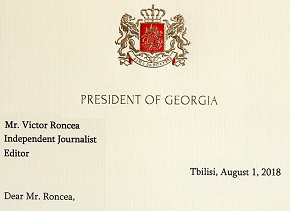

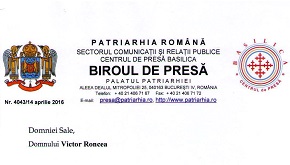



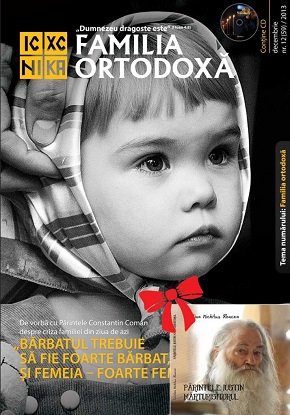




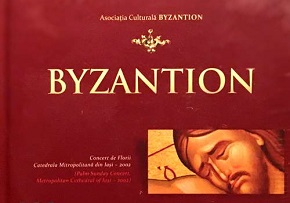







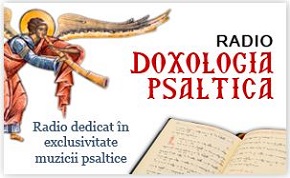





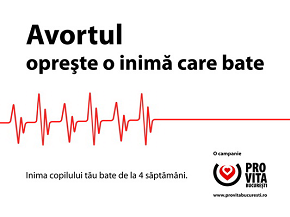
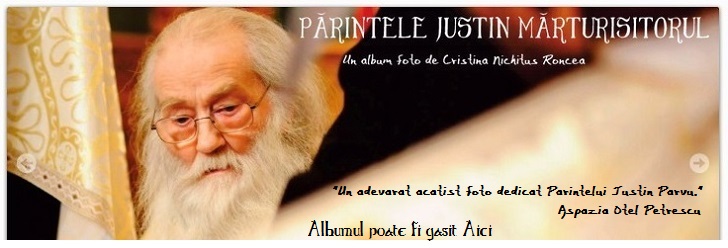
Dar pentru o mai buna informare..nu credeti ca trebuia postata si traducerea acestui articol in limba romana????nu de alta…dar 90% din poporul roman…nu citeste si nu se exprima cursiv in limba engleza!!sa nu mai pomenesc si care este limba oficiala a statului roman!
Exista un buton in stanga de traducere (TRANSLATE) in vreo 11 limbi. Folositi-l cu incredere!
Si cred ca gresiti in privinta procentului 🙂
Aceste harti se potrivesc cu povestea de mai sus:
https://www.youtube.com/watch?v=DrZvn1qckIs
O buna piesa de propaganda. Induiosatoare pentru sentimentalii si naivii romani pentru ca apoi sa dea verdictul. Singura sansa pentru voi este sa mergeti pe mana celor ce conduc SUA si poate scapati (sau poate nu – parca poti sa stii si daca poti sa stii parca poti sa fii sigur).
(Mai o minciunica ici si una colea. Adica comunistii moscoviti nu au avut nici o influenta in ROmania. Puterea a fost de la bun inceput a autohtonilor. Nu. Loviturile date de autohtoni comunistilor importati s-a dat intr-un moment de cotitura cand neamul lui izmenitschi era dat afara din structurile de putere in Est ca sa se reformeze in aparatori ai drepturilor omului, democrati si conservatori odata traversat oceanul.)
In realitate acest lucru inseamna distrugerea BIOLOGICA a poporului roman prin metisare cu toate natiile africii si asiei. Inseamna violenta si tiganizare.
La ce bun ca formal ne-am pastra granitele si numele? (De fapt pentru cat timp?)
In realitate daca Rusia ar da liber la Unire o realiniere catre Rusia ar fi de salutat. Rusia ar castiga poate cel mai bun si mai fidel aliat in Romania, daca ar renunta la jocurile murdare in zona noastra.
O fi fost istoria aspra cu noi, dar si noi am fost ingrozitori de lenesi si superficiali, neghiobi si incompetenti.
Biologic vorbind, ori se realizeaza un salt in calitatea umana romaneasca , o ridicare a mediei (nu vorbim strict de varfuri care oricum emigreaza) ori disparem fizic inghititi de ceilalti. Prefer sa ma fac rus decat sa ma vad intr-o Romanie plina de tigani. Deja suntem robii lor.
Nu pot sa spun ca sunt Ortodox, Darwin a fost un bou si sa inchid subiectul. Supravietuirea celor mai puternici in dauna celor slabi e o lege biologica. In continuare ne distrugem fibra, ne tiganizam biologic si mental, ne cheltuim energiile in dispute cretine. Nimic despre PUTERE, SANATATE, DORINTA DE VIATA, IUBIRE si MUNCA.
Razvan says:
17/11/2010 at 09:56
“Prefer sa ma fac rus”
“o realiniere catre Rusia ar fi de salutat.
Rusia ar castiga poate cel mai bun si mai fidel aliat in Romania.”
Daca ar putea auzi ce aberatii ai scris ,STRABUNII nostri care au umplut transeele si miile de campuri de lupta cu sangele lor,s-ar rasuci in groapa sau prin mausoleul de la Marasesti de durere si furie.
ALIANTA cu Imperiul RAULUI ABSOLUT?
Ori habar nu ai istorie ori MANIPULEZI ORDINAR.
Personal inclin spre varianta cea din urma.
CALAII OCUPANTI RUSI NU AU “ALIATI”.
Ei au DOAR SCLAVI.
Vrei alianta cu…RUSIA ca sa scapi de…TZIGANIZARE???
Ceea ce cu viclenie(sau prostie)omiti este ca in intrewaga sa istorie CALAII RUSI au urmarit de sute de ani SA ASIMILEZE POPORUL DAC(ROMAN).
Oricine poate vedea ce au facut in 200 de ani DE OCUPATIE BRUTALA in Basarabia.
DISTRUGEREA LIMBII ROMANE,a BISERICI ORTODOXE ROMANE ,au fost principalele obiective ale CALAILOR OCUPANTI RUSI!
Iar politia secreta fie ca s-a numit OHRANA-CEKA-NKVD-KGB-FSB a lichidat orice rezistenta ROMANEASCA,vezi sotii TEODOROVICI,Gheorghe GHIMPU,Grigore VIERU…
CALAII RUSI au destabilizat si au creat mereu CRIZE ARTIFICIALE in Romania,vezi “rascoala” NKVD de la 1907,”rascoala” de la TATARBUNAR,”revolutia din 1989″(veritabila LOVITURA DE STAT KAGHEBISTA cu “turisti sovietici” si spioni GRU in rolurile principale si ACTORI si regizori KGB in rolurile secundare si POPORUL ROMAN in rolul figuratiei care MOARE DUPA PLANUL STABILIT LA KREMLIN).
Astia sunt “ALIATII” romanilor in viziunea acestui “RAZVAN-KGB”.
Chiar acum cand scriu COPIII ROMANI din liceele ROMANESTI din Basarabia de peste NISTRU sunt TERORIZATI pentru ca INDRAZNESC sa invete in LIMBA ROMANA STRAMOSEASCA.
Domnule RONCEA,PRIETENE(daca imi permiti),ce ar fi sa ii sugeram “romanului” “Razvan” sa …”DEVINA RUS” pe fatza de pe acum?
O vizita “de lucru”(ca SCLAV)in GULAGURILE SIBERIENE ii putem recomanda cu caldura.
Caldura care ii va tine de cald in timp ce va zacea gramada pe podeaua unui VAGON DE VITE.
Ca sa respectam ADEVARUL ISTORIC.
MILIOANE DE ROMANI au pierit fie in razboi,fie deportati, executati,fie inchisi,torturati de catre CALAII OCUPANTI RUSI.
Pun pariu ca este un innebunit dupa Partidul UNIC PSD-PNL-KGB,curvele marioneta gen CRETIN Antonescu-Ponta vor si ei ce vrea…”Razvan”.
Iata cu cine vrea “alianta” “Razvan” si desigur Partidul UNIC PSD-PNL-KGB:
PATIMILE BUCOVINENILOR
In 1940, Romania a fost fortata sa cedeze catre Uniunea Sovietica un teritoriu locuit de peste 3 milioane de locuitori, in urma ultimatumului primit in luna iunie a aceluiasi an.
Imediat ce administratia si armata romana au fost evacuate, trupele din Armata Rosie si NKVD au ocupat teritoriul.
Listele Deportarilor
NKVD-ul a intocmit primele liste ale „tradatorilor de tara”, cei cu rude in Romania sau banuiti ca vor sa fuga in Romania, care au fost deportati la munca fortata:
* 7 Decembrie 1940 – 1.294 persoane
* 1 Ianuarie 1941 – 1.085 persoane
Reprimarea Incercarilor de Refugiere
19 Noiembrie 1940
105 persoane (40 familii) au incercat sa treaca in Romania – din Suceveni
* Ucisi: 3
* Raniti: 2 raniti (capturati)
* Refugiati in Romania: 100 (5 raniti)
* Deportari: toate rudele celor 105 persoane
6 Februarie 1941
500 persoane au incercat sa treaca in Romania – din Mahala, Cotul-Ostritei, Buda, Sirauti, Horecea-Urbana, Ostrita
* Ucisi: cca. 400 ( N. Merticar, N. Nica, N. Isac – organizatori)
* Arestati: 44
* Condamnati la moarte: 12
* Condamnati la 10 ani munca silnica: 32
* Refugiati in Romania: 57
* Deportari in Siberia: toate rudele celor 500 persoane
Masacrul de la Fantana Alba – 1 Aprilie 1941
* 2.000- 3.000 persoane din Patrautii de Sus, Patrautii de Jos, Cupca, Corcesti, Suceveni in coloana pasnica purtand in fata un steag alb si insemne religioase s-au indreptat spre granita cu Romania.
* In poiana Varnita, la 3 km de granita, au fost mitraliati de sovieticii ascunsi in padure.
* Supravietuitorii au fost urmariti de cavalerie si spintecati cu sabiile.
* Ranitii au fost legati de cozile cailor si tarati in in 5 gropi comune sapate dinainte unde au fost ingropati de vii: batrani, femei, copii, sugari.
* Altii au fost arestati de NKVD-ul din Hliboca (Adancata), torturati si aruncati de vii intr-o groapa comuna din cimitirul evreesc peste care s-a turnat var nestins.
12-13 Iunie 1941
Peste 13.000 de romani au fost deportati in Siberia si Kazahstan
PATIMILE BASARABENILOR
A. PIERDERI UMANE ALE BASARABIEI SUB OCUPATIA SOVIETICA
I. PRIMA OCUPATIE SOVIETICA 28 Iunie 1940 – 22 Iunie 1941
In mai putin de un an, peste 300.000 de persoane au fost arestate, deportate, ucise, aceasta reprezentand 12.23% din populatia Basarabiei interbelice.
1. Arestari: – 48.000 persoane:
· Oameni politici care militasera pentru Unire, invinuiti de tradare, dintre care:
· 5 fosti deputati din Sfatul Tarii (Ion Codreanu, Leanca, Secara, Catelli)
· 1 fost senator
· Functionari civili si militari – transferati la Tiraspol pentru siguranta
· 40 elevi ai Institutului Pedagogic Orhei –
2. Deportari – aproape 300.000 (in Nordul inghetat)
· 135.000 persoane pana in Septembrie 1940
· 19.200 persoane intre Octombrie-Noiembrie 1940
· 27.000 persoane in Decembrie 1940
· 100.000 persoane incepand cu 13-14 Iunie 1941
3. Ucisi – 30.000 prin impuscare sau tortura
· Orchestra Simfonica a Basarabiei este ridicata pe 3 Iulie 1940 din gara Chisinau la intoarcerea din turneu, dusa langa Orhei si impuscata in Valea Morii.
· 1.000 persoane (copii, femei, adulti) – langa Odesa impuscate prin peretii de lemn ai unui tren de marfa cu 22 vagoane care-I transporta in Siberia.
· 450 persoane – gasite (multe mutilate) in gropile de la Consulatul Italian, Palatul Metropolitan, Facultatea de Teologie din Chisinau. Printre ei studenti, elevi, preoti, ceferisti.
· 87 persoane –Sediul NKVD, Chisinau (15 cu mainile legate in groapa comuna)
· 19 persoane – gasite la Sediul NKVD-Cetatea Alba
· 6 persoane – Sediul NKVD, Ismail (5 barbati si o femeie cu mainile legate)
4. TOTAL pierderi umane in prima ocupatie sovietica
· Deportari: 300.000
· Ucisi: 30.000
· TOTAL: 330.000
II. A DOUA OCUPATIE SOVIETICA – 23 August 1944
1. Deportari
· 250.000 persoane intre 1944-1948
· 11.324 familii 6 Iulie 1949
· 300.000 persoane intre 1954 – 1964 (in Rusia si Kazahstan)
2. Morti prin infometare provocata de Stalin
· 300.000 persoane
3. TOTAL pierderi umane in a doua ocupatie sovietica
· Deportati: 875.000
· Morti: 300.000
· TOTAL: 1.175.000
III. TOTAL PIERDERI UMANE IN CELE DOUA OCUPATII SOVIETICE
· 330.00 – Prima ocupatie sovietica
· 1.175.000 – A doua ocupatie sovietica
· 1.505.000 – TOTAL PIERDERI ROMANESTI
B. PIERDERILE TERITORIALE ALE PROVINCIEI BASARABIA
Judetele Hotin (Nord), Ismail si Cetatea Alba (Sud) sunt incorporate Ucrainei la 2 August 1940.
C. PIERDERILE ARMATEI REGALE ROMANE IN BASARABIA DUPA CAPITULARE
1. Deportari
· 180.000 soldati si ofiteri (doar cateva mii s-au intors)
2. Executati prin impuscare in lagar (Katin romanesc)
· 50.000 soldati si ofiteri (schelete descoperite in mlastinile de la Balti).
Partidul UNIC PSD-PNL-KGB este COLOANA a-5-a a RUSIEI in ROMANIA!
NU Partidului UNIC PSD-PNL-KGB!
NU RUSIEI!
Afara cu armata RUSA DE OCUPATIE de pe pamantul ROMANESC,sfant si stramosesc al Basarabiei si Bucovinei de nord!
MOARTE RUSIEI!
Anti KGB deinflameaza-te si gandeste la rece. Ce pot sa spun? Decat ca mi-a fost foarte greu sa spun ceea ce am spus? Ca bunicii au murit pe front impreuna cu o buna parte a barbatilor din familie? Ca cei mai in varsta au infundat puscariile comuniste – Poarta Alba si Canal? Cine comanda asta? Rusul Ivan tampit de bautura sau altcineva? Ca aveau si rusii inchisorilor lor pe care le umpleau cu spor.
Dar am spus-o si o pot sustine. Si ai intelege si tu daca te-ai uita in jur.
SI apropos cine manipuleaza aici? “Moarte Rusiei”? Te duci tu sa te bati cu ei mai iubitor de istorie? Cate kg ai? Cat de bine tragi cu arma? Cat supravietuiesti intr-o groapa cu noroi cu doi biscuiti mucegaiti ratie? Cum te descurci la -40 grd C? Flotari, tractiuni? Orientare in teren? E suficient in fata unui atac combinat?
Ce aliati avem? Care sunt pretentiile teritoriale ale vecinilor vis-a-vis de Romania? Care sunt pretentiile minoritatii tiganesti? Cum ar reactiona ea in cazul unei invazii?
Mai baiete la cat suntem de putini si inapti astazi, un razboi ne-ar mai lipsi ca sa disparem cu totul ca natie.
Aici nu e vorba de razboi clasic, e vorba de SUPRAVIETUIRE.
Gandeste-te ca America poate sa se prabuseasca. Ia si varianta asta in calcul. Atunci?
Ce tara are sanse mai mari de supravietuire? Una omogena ca Rusia sau una diversa ca SUA? URSS de ce s-a prabusit? Dar Yugoslavia? De atata diversitate si internationalism. Ceea ce nu mai e cazul Rusiei. Dar a devenit al Americii.
Ce ne doare in fata Rusiei? Basarabia! Ce ne doare in fata SUA si a sistemului reprezentat de “ei”? Pierderea identitatii nationale si degradarea biologica!
Alegerea dumneavoastra domnilor. Dar fara lozinci tampite.
Katin si Balti au si rusii si ucrainienii. Tot cu sutele de mii si milioanele. Cine a comandat cine a executat? Cine sunt aceia? Cine conducea URSS in acele momente? CINE? Inainte de a blama un popor intreg?
Nationalismul nu se defineste prin cantitatea de ura fata de alte popoare. Asta e sovinism de joasa speta. Nationalismul este iubire de neam si de tara. Nu ura, nici dorinta de jaf sau de a aduna sclavi straini.
Ca rusii confunda instinctiv una cu cealalta e adevarat. Ca americanii confunda cu intentie una cu cealalta iarasi e adevarat.
La mijloc suntem noi – tarile tampon. Iar noi trebuie sa SUPRAVIETUIM. Daca suntem apti de asta. Daca nu ne putem sinucide si fara motivele tale istorice din care nu invatam nimic.